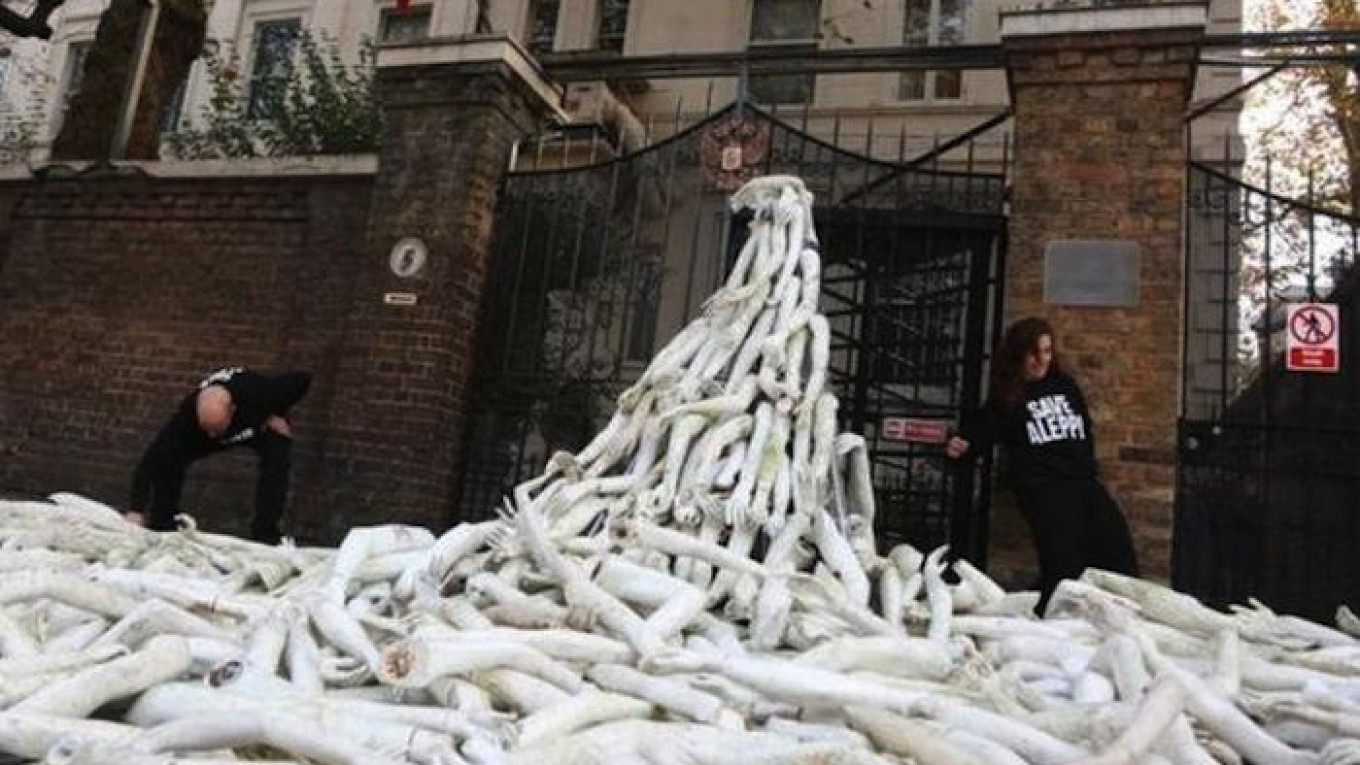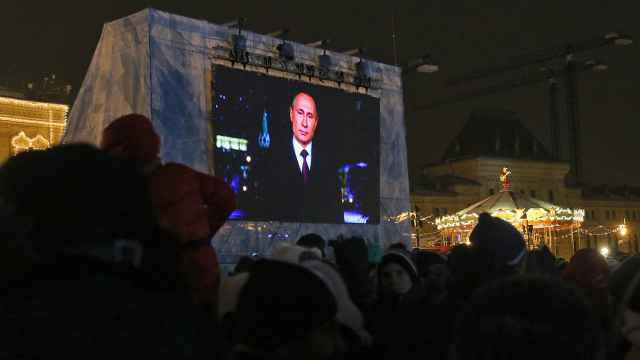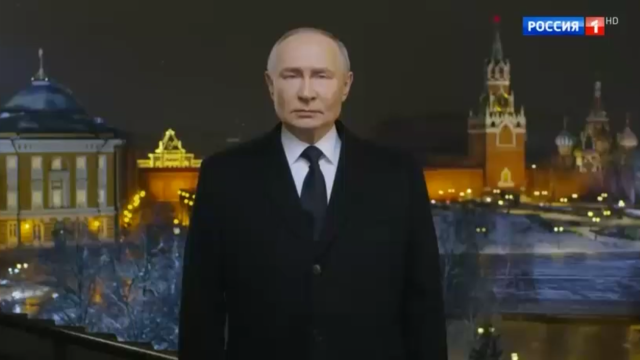The Russian Embassy
in London has sent a written complaint to the British Foreign
Office after a mountain of fake limbs were dumped outside its
embassy on Thursday.
Protesters attached
hundreds of mannequin arms to the consulate's gates on Thursday
afternoon and some people taking part in the stunt handcuffed
themselves to the gates.
The loud protest was
meant to draw attention to Russia's involvement in Syria, where it
has been accused of targeting moderate rebels fighting the government
of Syrian President Bashar Assad.
In an online
statement the Russian Embassy in the British capital expressed “deep
concern [over] the unwillingness of the British government to ensure
normal operation and security of the Russian diplomatic mission in
London.”
It complained that
police officers had looked on without taking any action and its phone
lines had been swamped with “nuisance callers.”
“One is under the impression that this disruptive 'protest
action' has been thoroughly planned, which is not surprising in the
context of the recent official statement [by British Foreign
Secretary] Boris Johnson,” the note said. It also added it saw the
stunt in light of “ an ongoing anti-Russian campaign in the media
inspired by some statements of the British officials.”
Johnson last month said last month he would “like to see” a protest at the Russian Embassy following outrage over continued air raids on the rebel-held city of Aleppo.
“There is no commensurate horror among protest groups,” Johnson said during a speech in the House of Commons, accusing Russia of intentionally targeting hospitals. “I would like to see demonstrations outside the Russian embassy.”
A Message from The Moscow Times:
Dear readers,
We are facing unprecedented challenges. Russia's Prosecutor General's Office has designated The Moscow Times as an "undesirable" organization, criminalizing our work and putting our staff at risk of prosecution. This follows our earlier unjust labeling as a "foreign agent."
These actions are direct attempts to silence independent journalism in Russia. The authorities claim our work "discredits the decisions of the Russian leadership." We see things differently: we strive to provide accurate, unbiased reporting on Russia.
We, the journalists of The Moscow Times, refuse to be silenced. But to continue our work, we need your help.
Your support, no matter how small, makes a world of difference. If you can, please support us monthly starting from just $2. It's quick to set up, and every contribution makes a significant impact.
By supporting The Moscow Times, you're defending open, independent journalism in the face of repression. Thank you for standing with us.
Remind me later.






